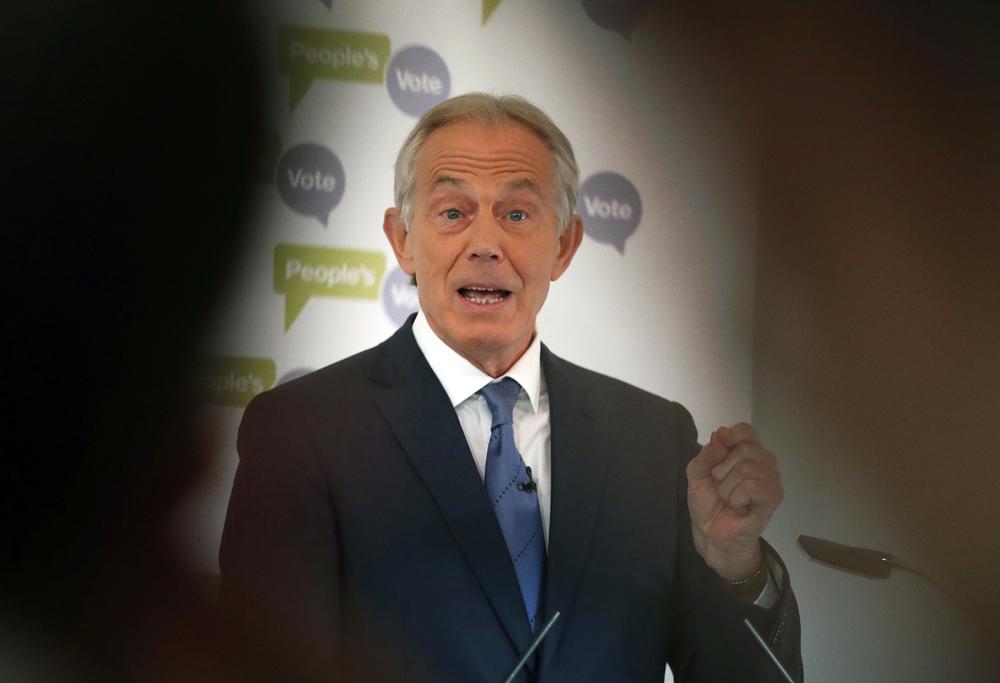London, Aug 22: Tony Blair, the British prime minister who deployed troops to Afghanistan 20 years ago after the 9/11 attacks, says the US decision to withdraw from the country has every Jihadist group round the world cheering.
In a lengthy essay posted on his website late Saturday, the former Labour Party leader said the sudden and chaotic pullout that allowed the Taliban to reclaim power risked undermining everything that had been achieved in Afghanistan over the past two decades, including advances in living standards and the education of girls.
"The abandonment of Afghanistan and its people is tragic, dangerous, unnecessary, not in their interests and not in ours, said Blair who served as prime minister during 1997-2007, a period that also saw him back the US-led war in Iraq in 2003.
The world is now uncertain of where the West stands because it is so obvious that the decision to withdraw from Afghanistan in this way was driven not by grand strategy but by politics," he added.
Blair also accused US President Joe Biden of being in obedience to an imbecilic political slogan about ending the forever wars', as if our engagement in 2021 was remotely comparable to our commitment 20 or even 10 years ago."
The former prime minister, whose reputation in the UK took a dive from the failure to find the alleged weapons of mass destruction that were cited as justification for US coalition's invasion of Iraq, said Britain has a moral obligation to stay in Afghanistan until everyone who needs to be evacuated is taken out.
We must evacuate and give sanctuary to those to whom we have responsibility those Afghans who helped us and stood by us and have a right to demand we stand by them," he said.
Like other nations, Britain is trying to evacuate Afghan allies as well as its own citizens from Afghanistan, but with a US-imposed August 31 deadline hovering into view, it's a race against time.
In addition to the 4,000 or so UK citizens, the country is thought to have around 5,000 Afghan allies, such as translators and drivers, earmarked for a seat on a plane.
The Ministry of Defense said Sunday that nearly 4,000 people had been evacuated so far.
Blair conceded that mistakes were made over the past two decades but added that military interventions can be noble in intent, especially when challenging an extreme Islamist threat.
Today we are in a mood which seems to regard the bringing of democracy as a utopian delusion and intervention virtually of any sort as a fool's errand." he said.
Blair also warned that the decision by the US to keep Britain largely in the dark about the withdrawal risks relegating the country to the second division of global powers.
However, he said the UK, in its role as the current president of the Group of Seven nations, was in a position to help coordinate an international response to hold the new regime to account .
Britain's Conservative government has been working diplomatically to ensure there is no unilateral recognition of a Taliban government in Afghanistan.
We need to draw up a list of incentives, sanctions, actions we can take including to protect the civilian population so the Taliban understand their actions will have consequences," Blair said.
Let the Truth be known. If you read VB and like VB, please be a VB Supporter and Help us deliver the Truth to one and all.
Pilibhit (PTI): A 19-day-old elephant calf, brought from Bijnor, was placed under care at the Pilibhit Tiger Reserve (PTR) on Sunday, an official said and added that the calf got separated from its mother in the forest area of Bijnor.
The calf was born on December 2 in the Bijnor forest area and got separated from its mother shortly after birth, the official said.
The forest department made several attempts to reunite it with its mother, but without any success. To ensure the calf's safety and better care, it was decided to transfer it to the Pilibhit Tiger Reserve on the instructions of senior officials.
On Saturday, Deputy Director Manish Singh received the calf. Special arrangements have been made in the reserve for its care. It has been kept in a safe and clean environment to provide it with a natural setting and protect it from external noise and disturbances.
Singh told reporters that raising an 19-day-old calf is challenging.
It requires a special diet as a substitute for mother's milk and constant monitoring.
He said a special team has been formed to provide 24-hour care. Since the calf is very young, it is being cared for like a newborn baby.
According to Singh, the primary responsibility for monitoring the calf's health has been entrusted to PTR's veterinarian, Dr Daksh Gangwar. Under his supervision, a complete record of the calf's health checkups, diet, and body temperature is being maintained. The team is ensuring that the calf does not contract any infection.





